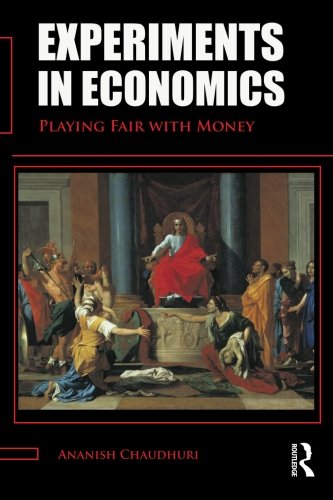

Most ebook files are in PDF format, so you can easily read them using various software such as Foxit Reader or directly on the Google Chrome browser.
Some ebook files are released by publishers in other formats such as .awz, .mobi, .epub, .fb2, etc. You may need to install specific software to read these formats on mobile/PC, such as Calibre.
Please read the tutorial at this link. https://ebooknice.com/page/post?id=faq
We offer FREE conversion to the popular formats you request; however, this may take some time. Therefore, right after payment, please email us, and we will try to provide the service as quickly as possible.
For some exceptional file formats or broken links (if any), please refrain from opening any disputes. Instead, email us first, and we will try to assist within a maximum of 6 hours.
EbookNice Team

Status:
Available0.0
0 reviewsAre humans fair by nature? Why do we often willingly trust strangers or cooperate with them even if those actions leave us vulnerable to exploitation? Does this natural inclination towards fairness or trust have implications in the market-place? Traditional economic theory would perhaps think not, perceiving human interaction as self-interested at heart. There is increasing evidence however that social norms and norm-driven behaviour such as a preference for fairness, generosity or trust have serious implications for economics. This book provides an easily accessible overview of economic experiments, specifically those that explore the role of fairness, generosity, trust and reciprocity in economic transactions.
Ananish Chaudhuri approaches a variety of economic issues and problems including:
The book discusses how norm-driven behaviour can often lead to significantly different outcomes than those predicted by economic theories and these findings should in turn cause us to re-think how we approach economic analysis and policy.
Assuming no prior knowledge of economics and containing a variety of examples, this reader friendly volume will be perfect reading for people from a wide range of backgrounds including students and policy-makers. The book should appeal to economics undergraduates studying experimental economics, microeconomics or game theory as well as students in social psychology, organizational behaviour, management and other business related disciplines.